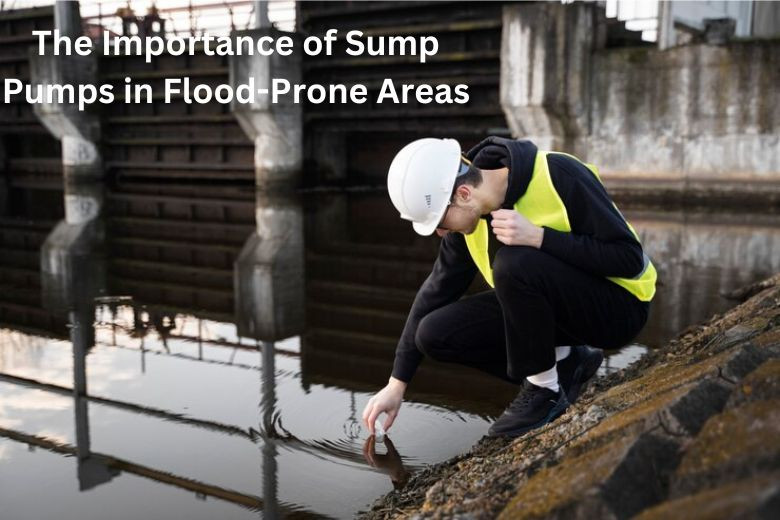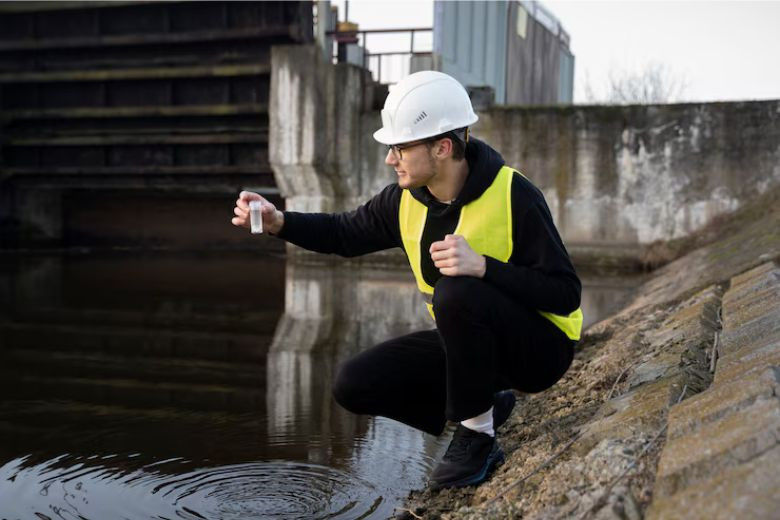The Importance of Sump Pumps in Flood-Prone Areas
Posted on September 20, 2024 by Admin

One critical issue of concern, when staying in areas that really flood, is water damage to a home. One could just not over-emphasize the effectiveness of one of those tools: the sump pump. A Plumber Service Provider can help homeowners understand the importance of sump pumps in flood-prone areas, potentially saving millions that would be spent on water damage. One might wonder what makes these sump pumps so important and just how they work to keep your home free from water.
What is a Sump Pump?
A sump pump is placed in the lowest point of the basement or crawl space. The main purpose is to remove water that accumulates in a sump basin and direct it out of the foundation of the home. This saves the basement from water damage.
Why Sump Pumps Are Important in Flood-Prone Areas
1. Prevents Water Damage
The sump pump has a main purpose of saving one from water damage. Flood areas, incidence of heavy rain, and rising groundwater usually cause major flooding. A sump pump should be able to help pump out excess water away from the foundation of your house, thus reducing the basement from flooding and away from structural damages.
2. Lowers the Risks of Mold and Mildew
More moisture in a basement would mean that mold and mildew would start to grow, and eventually, this would bring about health hazards and even the damage of stored items. Since they effectively remove water, sump pumps create a dry environment, thereby lessening the chances of developing mold and mildew.
3. Protect Retail Merchandise Stored in Your Basement
Finally, standing water around the base of your home could eventually undermine the resilience of the structure. A sump pump system in a flood-prone zone keeps the level of water around the home's foundation in check, thus maintaining the home's integrity and stability.
4. Preserves Property Value
Those houses which are located in flood-prone areas but have working sump pumps installed are more appealing for purchase. A sump pump system is a testimony that that particular property is protected from water damage and therefore, aids in protecting property value or even boosting it. An effective sump pump is a long-term investment in property investment.
4. Givens One Peace of Mind
Living in an area prone to flooding can be quite anxiety-provoking, especially when it rains or storms. But one thing that may fully relieve your stress is knowing that, in fact, your sump pump works, and it is really saving your dwelling from the water damage. It shows you take proactive measures to ensure possession and belongings safety.

How to Ensure Your Sump Pump Really Works
1. Regular Maintenance
The whole system should be serviced from time to time to ensure it is working well. Check the pump from time to time in order to eliminate clogging. Test it with some water in the sump pit to check if it will turn on.
2. Install a Backup System
Consider adding a backup battery system for the sump pump. Big storms usually result in power outages; with a backup system, you can rest assured that the sump pump will go on running even when the main power goes out.
3. Inspect the Discharge Line
The discharge line should not be clogged and should discharge well away from your home's foundation. A blocked discharge line will cause the water to back up and make your pump inefficient.
4. Professional Inspection
Invite a professional plumber to inspect the sump pump system at least once every year. They will be able to notice any impending problems and fine-tune your pump for the best performance.
Conclusion
A sump pump is quite essential, especially in locations prone to flooding. It's key to keeping you safe from potential water damage, preventing mold and mildew growth, and maintaining the integrity of your house's foundation. A Plumber Service Provider can ensure proper installation and frequent maintenance, allowing your sump pump to work effectively in saving your house from such challenges in a flood-prone area. Quality sump pump systems are an investment and a precautionary measure that brings peace of mind while safeguarding your property from the devastation caused by flooding.
Also Read :
The Benefits of Professional Drain Cleaning vs. DIY Methods
How to Prevent Water Damage in Your Home
How to Integrate Home Automation Systems with Existing Electrical Systems
How to Finance Your Roof Replacement: Loans, Grants, and Insurance
Roof Safety Tips for Homeowners
The Impact of Algae and Moss on Your Roof
How to Deal with Roof Leaks During a Storm
How to Create an Electrical Maintenance Plan for Your Home
Faqs
-
1. How do sump pumps help prevent water damage?
Basically, it sucks away excess water in the sump basin, hence preventing seepage which in most instances is a precursor of structural destruction.
-
2. How does a sump pump avoid mold problems?
By keeping the basement dry, a sump pump reduces moisture levels stopping the growth of mold and mildew that thrives in a damp environment
-
3. How does a sump pump protect a home’s foundation?
A sump pump manages and controls the levels of water around the foundation; this prevents erosion and damage by water that might weaken the home's structural integrity.
-
4. What maintenance does a sump pump require?
This would also include checking for debris, ensuring the pump is tested, ensuring the discharge line is clear, and having the whole system professionally inspected yearly.
-
5. Should I add a backup system to my sump pump?
Yes, it is strongly recommended that you add a battery backup system so your sump pump keeps functioning even during power outages and you remain fully protected from the nightmare of flooding.
Recent Post
- Top Plumbing Service Providers in Arizona, USA
- Top 10 Electrician Service Providers in Alabama, USA
- Top 20 Roof Repair Service Providers in Alabama, USA
- The Role of Roof Insulation in Energy Efficiency: Tips and Tricks
- Understanding Roof Damage from Wildlife and How to Prevent It
- How to Choose the Best Roofing Contractor for Emergency Repairs
- Roofing Maintenance for Historic Homes: Preserving Architectural Integrity
- The Importance of Proper Attic Ventilation for Roof Health
- How to Identify and Prevent Roof Mold and Mildew
- The Best Practices for Removing Snow from Your Roof